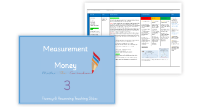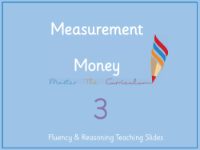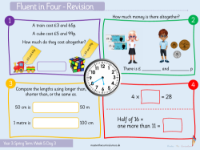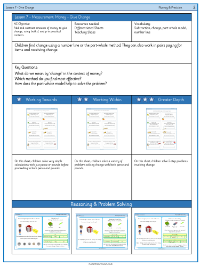Money - Give change - Planning
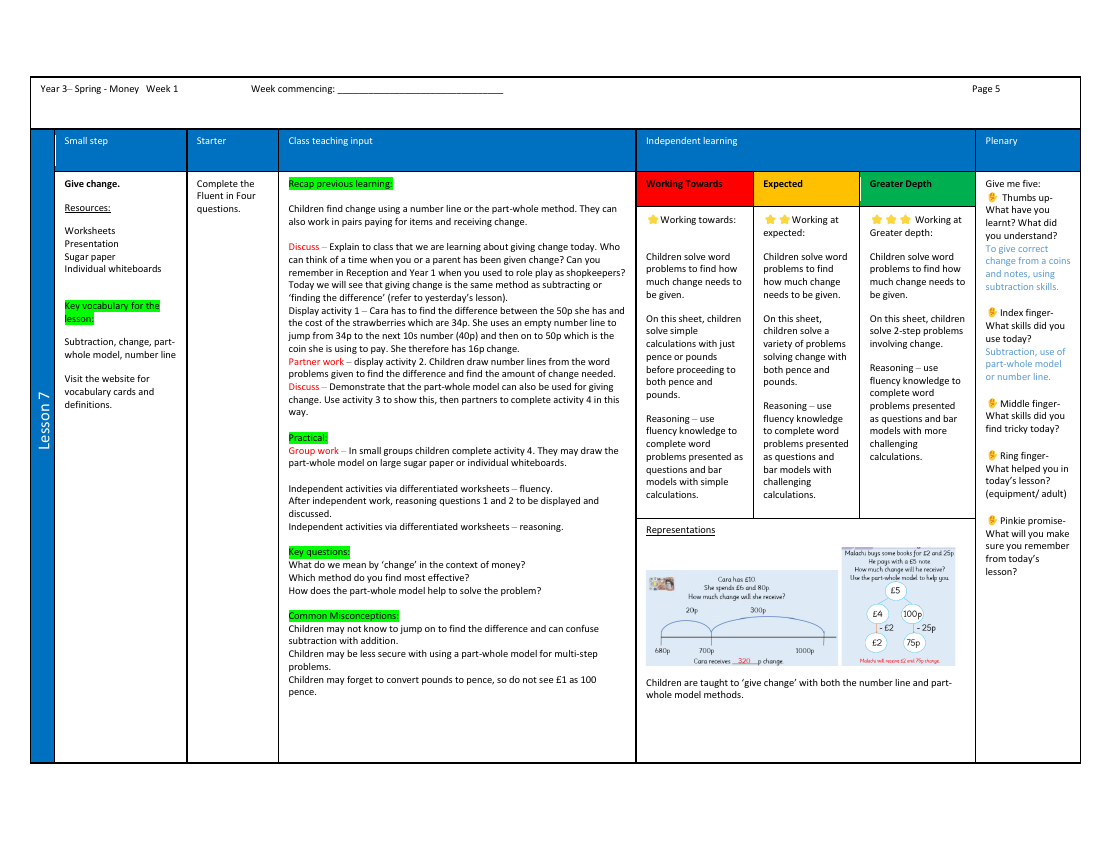
Maths Resource Description
In the Year 3 Spring term, students embark on a mathematical journey to master the concept of giving change. The week's lesson is structured to ensure a solid understanding of the process, which is essential for real-world financial literacy. The class is equipped with various resources, including worksheets, a presentation, sugar paper, and individual whiteboards, to facilitate an interactive learning experience. Key vocabulary such as 'subtraction', 'change', 'part-whole model', and 'number line' are introduced, with additional support available through vocabulary cards and definitions on the school's website. Students begin by refreshing their memory of previous lessons, using a number line or the part-whole method to find change, and recalling early years' role-play activities as shopkeepers. The class then delves into the day's focus, with the understanding that giving change is akin to subtracting or finding the difference between two amounts.
The lesson includes a variety of activities that cater to different learning styles and levels of understanding. Initially, students work in pairs, using word problems to draw number lines and calculate the change required. This is followed by a demonstration of the part-whole model, which offers an alternative method for solving change-related problems. In group work, children get hands-on experience by drawing models on sugar paper or whiteboards. Differentiated worksheets are provided for independent practice, focusing on fluency and reasoning skills. Throughout the lesson, key questions prompt students to reflect on their understanding of change, their preferred methods, and how the part-whole model aids in problem-solving. Common misconceptions are addressed, such as the confusion between subtraction and addition, the use of the part-whole model for multi-step problems, and the conversion of pounds to pence. The lesson concludes with a 'Give me five' reflection, where students summarise what they've learned, the skills they've used, the challenges they've faced, and the support they've received, ensuring they remember the key points of the lesson. Progression is evident through the tasks set for 'Working Towards', 'Expected', and 'Greater Depth', with each level presenting increasingly complex problems involving change.
